How Do Commercial Pools Differ from Residential Pools
When most people picture a pool, they imagine summer days, splashing kids, and relaxing weekends. However, not all pools serve the same purpose or are built the same way. The difference between commercial pools and residential pools goes far beyond size. From design and materials to safety requirements and functionality, each type has distinct features tailored to its environment.
At Burleson Pool Company, we’ve spent over 50 years designing and building both commercial and residential pools across Alabama. Here’s how they differ – and how to decide which is right for you.
Design & size
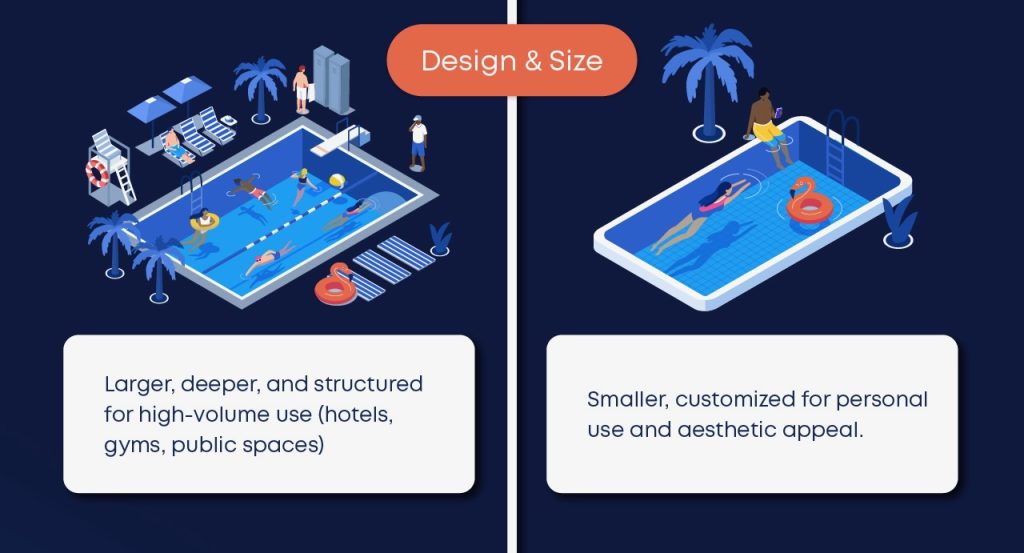
Commercial pools
Designed to accommodate a high volume of users, commercial pools are often larger, deeper, and more structured in layout. Think hotel pools, community swim centers, or athletic complexes—each built with a specific function and user experience in mind.
Residential pools
These are typically smaller and tailored to fit the lifestyle and vision of the homeowner. Whether it’s a sleek lap pool or a freeform design for weekend lounging, residential pools offer more flexibility in shape and features.
Construction & materials
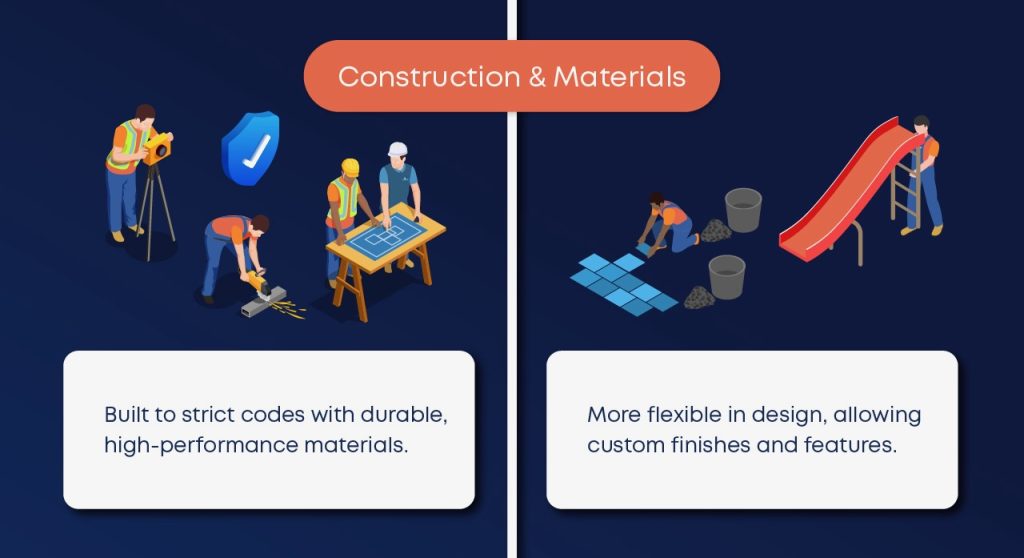
Commercial pools
These projects must meet strict codes and durability standards. Materials are chosen for longevity and performance under heavy use. Every component – from surfacing to structural reinforcements – must meet regulatory guidelines.
Residential pools
While still built with durability in mind, residential pools allow more room for creative expression. Homeowners can explore unique tile work, water features, and custom finishes with fewer limitations.
Safety & compliance requirements
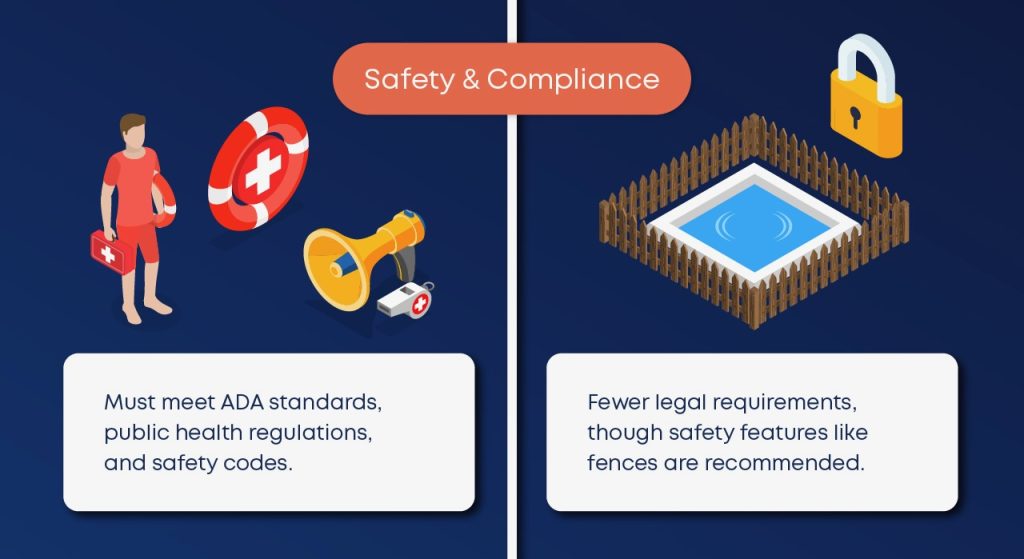
Commercial pools
From ADA accessibility features to public health regulations, commercial pools face stringent oversight. Handrails, lifts, non-slip surfaces, and lifeguard requirements may all be mandatory depending on usage.
Residential pools
While safety is always a priority, homeowners face fewer legal requirements. Features like fences or alarms may be encouraged or mandated locally, but the overall compliance landscape is more relaxed.
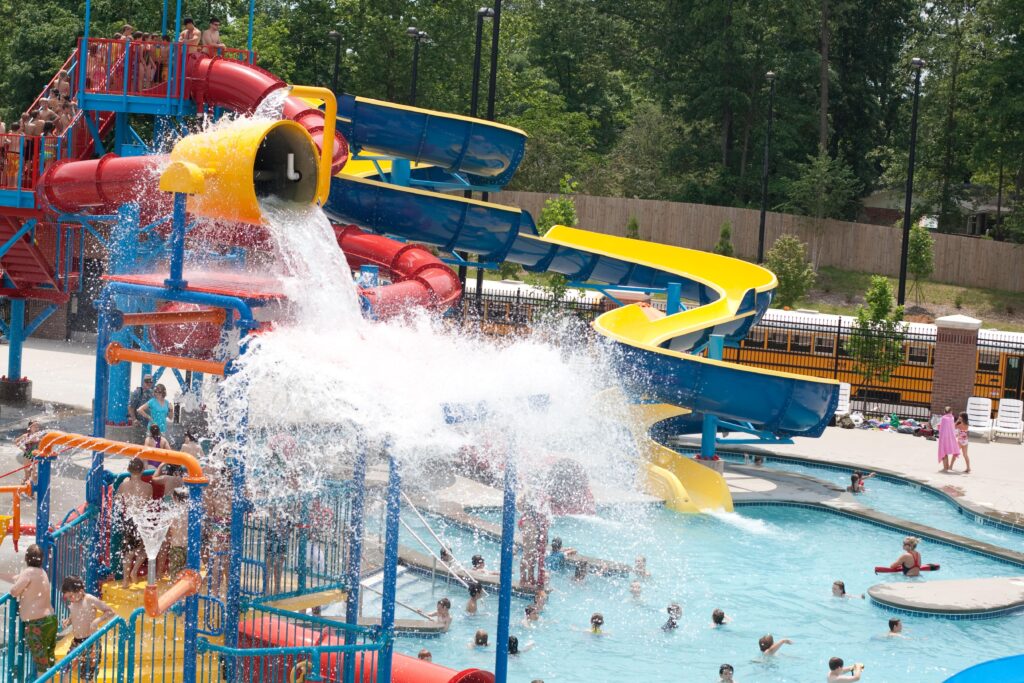
Filtration & maintenance
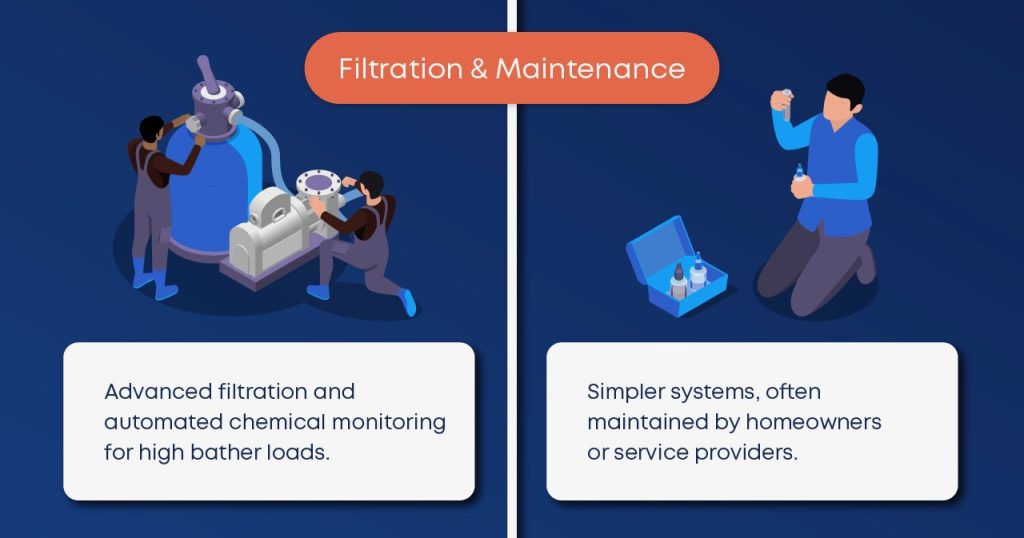
Commercial pools
With higher bather loads, these pools require advanced filtration systems and chemical monitoring. Automated systems are often in place to maintain consistent water quality and meet health department standards.
Residential pools
Homeowners can typically manage maintenance with less complexity. While a professional service is still recommended, the systems in place are simpler and tailored to private use.

Usage & functionality

Commercial pools
These pools are designed for multiple users and purposes – exercise, therapy, competitions, or recreation. Each function influences the pool’s depth, features, and design.
Residential pools
The focus here is on private enjoyment. Whether it’s family fun, personal fitness, or entertaining guests, residential pools are built around individual preferences and aesthetics.
The differences between commercial and residential pools come down to scale, compliance, and purpose. Commercial pools are high-traffic, highly regulated systems built for broad usage. Residential pools, on the other hand, are personal sanctuaries, custom-crafted for relaxation and style.
At Burleson Pool Company, we bring the same dedication in every detail to both. Whether you’re planning a backyard oasis or a large-scale development, our experienced team is here to guide you through every step.
Thinking about building a pool? Let’s talk about what’s right for your space. Contact us today to get started.





